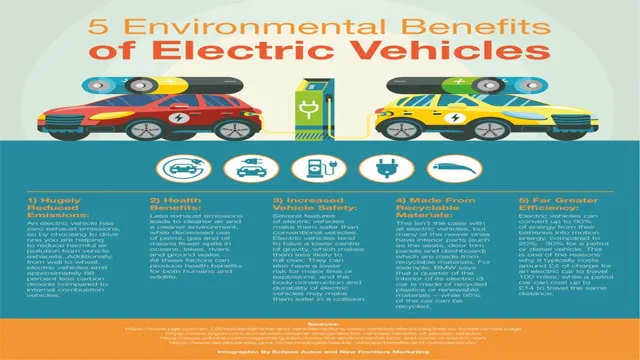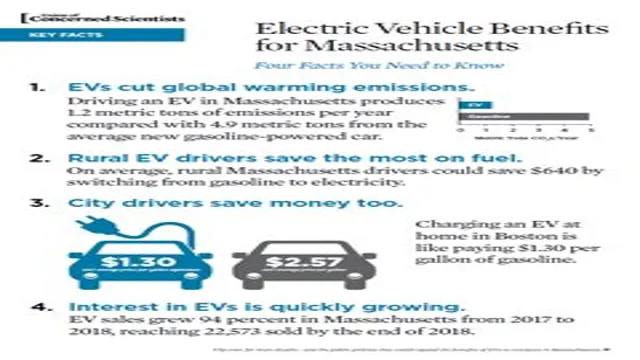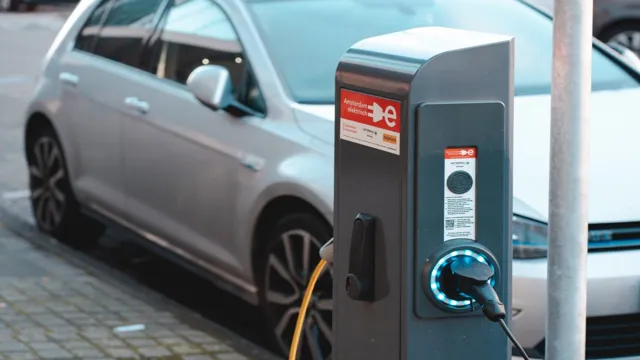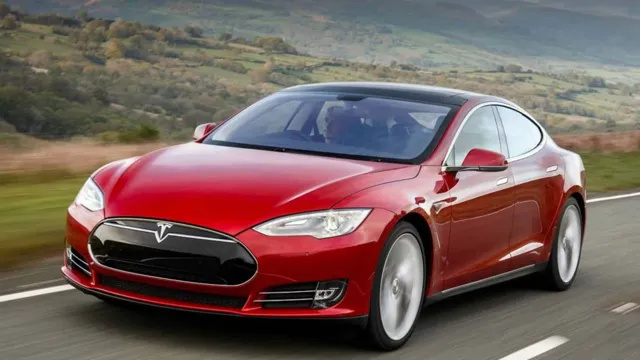Electric Cars: Eco-Friendly Solution or Just a Buzz?
Electric cars have been gaining popularity in recent years as people become more aware of the impact of fossil fuels on the environment. With a surge in sales and public interest, many wonder if electric cars are truly the solution to reduce carbon emissions and protect the planet. In this blog, we will explore the relationship between electric cars and the environment and discuss how they can positively impact our planet.
From reducing greenhouse gas emissions to decreasing air pollution, electric cars offer a greener driving experience and are a step towards a more sustainable future. But, is this shift to electric cars enough to combat climate change? Join us on a journey to understand how the use of electric cars can benefit our planet and make a difference in creating a better tomorrow.
Reducing carbon emissions
Electric cars have been touted as a green alternative to traditional gas-guzzling vehicles. But do electric cars benefit the environment? The answer is yes! By running on electricity rather than gasoline, electric cars produce zero emissions, which means they don’t contribute to air pollution and climate change. In fact, the production of electric cars produces fewer emissions than that of traditional cars.
Additionally, the more people adopt electric cars, the less fossil fuel our transportation sector consumes. This will lead to a decrease in carbon emissions, which will have a positive impact on our planet’s health. While electric cars themselves do have some environmental impacts, such as battery production, overall, they are a much greener and sustainable option.
So if we want to reduce our carbon footprint and make a difference in the fight against climate change, electric cars are a great place to start.
Comparison with internal combustion engines
When it comes to reducing carbon emissions, electric motors are a more sustainable option compared to their internal combustion engine counterparts. Traditional engines rely on fossil fuels that emit harmful gases into the air, contributing to climate change and causing harm to our environment. On the other hand, electric engines are powered by rechargeable batteries that emit significantly fewer emissions, making them an eco-friendlier choice.
By using electric vehicles, we can reduce our carbon footprint and take steps toward a greener, more sustainable future. Plus, with advancements in technology, electric vehicles are becoming more efficient and practical for everyday use. It’s time we start prioritizing sustainability and considering the impact of our transportation choices on the environment.
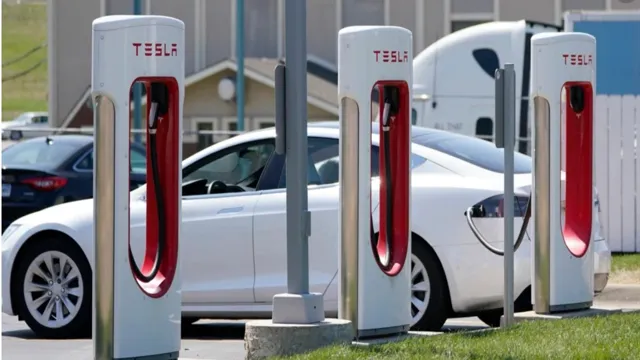
Electricity generation and emissions
Reducing carbon emissions from electricity generation is critical to mitigating the impacts of climate change. The use of fossil fuels like coal, oil, and gas is a major contributor to greenhouse gas emissions, which trap heat in the atmosphere and cause global temperatures to rise. To combat this, many countries are investing in renewable energy sources like wind, solar, and hydro power to generate electricity with a lower carbon footprint.
In addition, efforts to increase energy efficiency and reduce waste can also have a significant impact on emissions. By transitioning to more sustainable ways of producing and using electricity, we can help to reduce our carbon footprint and protect the planet for future generations. It is important to make these changes now to ensure a more sustainable future.
Let’s take action and make a positive impact on the environment together!
Improving air quality
Electric cars have been hailed as a major contributor to improving air quality. The environmental benefits of electric vehicles are based on the fact that they emit no pollutants from the tailpipe, and their rechargeable batteries can be charged using renewable energy sources like wind and solar power. Unlike gasoline-powered cars, electric vehicles also generate no emissions that can cause smog, acid rain, or other harmful environmental effects.
Furthermore, electric cars have a much lower carbon footprint compared to conventional cars, as they emit far less carbon dioxide per mile driven. Moreover, electric cars have lower running costs than petrol or diesel cars, and their batteries are recyclable, making them an environmentally sound choice. So, to answer the question, “do electric cars benefit the environment?” The answer is an absolute yes! With advancements in technology and increased adoption, electric cars will undoubtedly pave the way to a greener future.
Reducing particulate matter and nitrogen oxide
Air pollution is a significant issue that affects human health, especially in urban areas. Particulate matter and nitrogen oxide emissions from vehicles, factories, and power plants contribute to poor air quality. It is important to reduce these harmful pollutants to improve air quality and protect public health.
One way to do this is by using cleaner technologies in transportation and energy generation. For example, electric cars emit no pollutants from their tailpipes, making them a great alternative to traditional gas-powered vehicles. Similarly, renewable energy sources such as wind and solar power emit no harmful pollutants, unlike coal-fired power plants.
By transitioning to cleaner technologies, we can reduce the amount of particulate matter and nitrogen oxide in our air, improve public health, and contribute to a cleaner environment.
Noise pollution
When we think about air pollution, we often overlook noise pollution. However, excessive noise can have serious effects on our physical and mental health. It can cause hearing damage, hypertension, sleep disturbance, and even heart disease.
To improve air quality, it’s important to address noise pollution as well. One way to do this is by reducing traffic congestion in city centers and creating pedestrian-friendly areas. This not only reduces noise levels but also encourages more active modes of transportation, ultimately improving the overall air quality.
Additionally, using noise barriers on highways and public transport can help reduce the amount of noise pollution that reaches residential areas. By taking small steps to reduce noise pollution, we can improve the quality of our air and overall health.
Reduction in GHG emissions from manufacturing
Improved air quality resulting from the reduction in greenhouse gas emissions is one of the most significant benefits of sustainable manufacturing practices. The reduction of GHG emissions from manufacturing is a crucial step towards mitigating climate change and its devastating effects. Sustainable manufacturing processes such as the use of renewable energy, efficient resource utilization, and lean manufacturing all contribute to reducing GHG emissions, consequently improving air quality.
Improved air quality has numerous benefits as it enhances the health and well-being of individuals by reducing respiratory diseases caused by air pollution. As manufacturing activities account for a significant portion of GHG emissions, reducing these emissions can lead to substantial improvements in air quality. A reduction in GHG emissions results in less air pollution, which can reduce the incidence of chronic respiratory diseases and asthma in the community.
Therefore, incorporating sustainable practices in manufacturing not only mitigates climate change but also enhances the health and well-being of individuals and communities.
Challenges and criticisms
While electric cars are often touted as the solution to our environmental woes, there are still challenges and criticisms with their adoption. For one, the manufacturing process of electric car batteries is not entirely eco-friendly, and disposing of them properly can also pose environmental concerns. Additionally, the source of electricity used to power these vehicles can greatly impact their overall environmental benefit.
If the electricity comes from non-renewable sources like coal, the carbon emissions from producing that electricity can offset the benefits of using an electric vehicle. There is also the issue of range anxiety – with most electric cars having a limited range, drivers may need to rely on charging stations frequently, which may not be easily accessible in certain areas. Despite these challenges, electric cars still hold promise for a more sustainable future, especially if we continue to develop cleaner energy sources and improve battery technology.
Battery disposal and recycling
When it comes to disposing of and recycling batteries, there are several challenges and criticisms that must be addressed. One of the main challenges is the fact that not all types of batteries can be recycled, which means that they often end up in landfills where they can cause environmental harm. Additionally, many people are not aware of the proper way to dispose of batteries, which means that they may simply throw them in the trash without realizing the potential impacts.
Another challenge is the fact that the recycling process itself can be quite costly and energy-intensive, which may discourage some companies from investing in it. Despite these challenges, however, battery recycling is an important step towards a more sustainable future and one that we must continue to prioritize. By properly disposing of and recycling batteries, we can reduce the amount of waste that ends up in landfills, conserve natural resources, and reduce the environmental impacts of battery production.
Electricity generation from dirty sources
Generating electricity from dirty sources such as coal, oil, and gas has been facing a lot of criticisms owing to its environmental impact. It is closely linked to air pollution, greenhouse gas emissions, and subsequent climate change. Burning fossil fuels emits carbon dioxide (CO2) and other noxious gases that have a devastating impact on the environment.
Consequently, governments, environmentalists, and concerned stakeholders have been urging the world to shift towards cleaner energy alternatives such as solar, hydro, and wind power. Despite the increasing campaigns to move away from dirty sources, the transition process is neither smooth nor fast. The transition to clean energy requires significant upfront investments, and renewable energy sources alone may not be sufficient to meet the world’s high energy demands.
Nonetheless, the current and future generations need to work hand in hand to transition to cleaner energy sources and safeguard our planet’s future.
Conclusion
After careful analysis and consideration, it is quite evident that electric cars, in fact, do benefit the environment. With their reduced emissions and reliance on renewable energy sources, they provide a cleaner and more sustainable mode of transportation. So, next time you’re thinking about purchasing a new car, remember the impact it could have on our planet and consider going electric.
Because not only will you look cool driving one, but you’ll also be doing your part in creating a cleaner future for us all.
FAQs
What are the environmental benefits of using electric cars?
Electric cars produce lower emissions and contribute to reducing air pollution. They also help in reducing dependence on fossil fuels, which are a major contributor to climate change.
Do electric cars emit any greenhouse gases?
While electric cars produce fewer tailpipe emissions than gas-powered cars, they still have emissions associated with their manufacturing and the production of electricity used to power them. However, these emissions are found to be lower than those of gasoline cars.
What is the impact of electric cars on the environment compared to traditional cars?
Electric cars have a significantly lower impact on the environment compared to traditional cars, especially when it comes to emissions. The electricity used to power electric cars can also come from renewable energy sources, further reducing their environmental impact.
Do electric cars require special infrastructure for charging?
While electric cars can be charged at home using a standard power outlet, a dedicated electric vehicle charging station is recommended for faster charging. Public charging stations are becoming increasingly common and can be found in public places, offices, and along highways.
